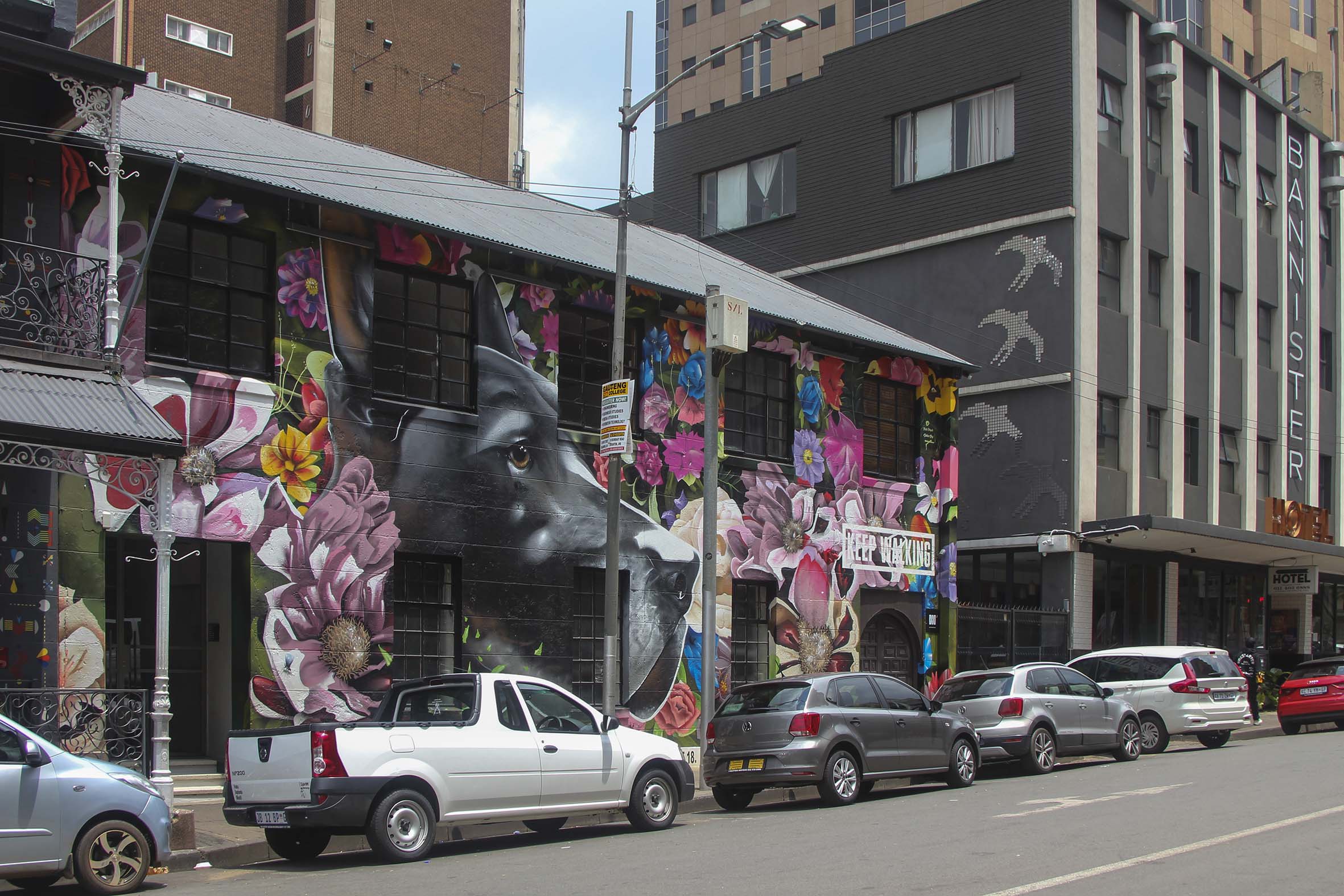Street sellers look forward to students returning
After two years of struggling and counting coins even more than they usually do, vendors in Braamfontein and Auckland Park need to get their best customers back.
Author:
31 January 2022
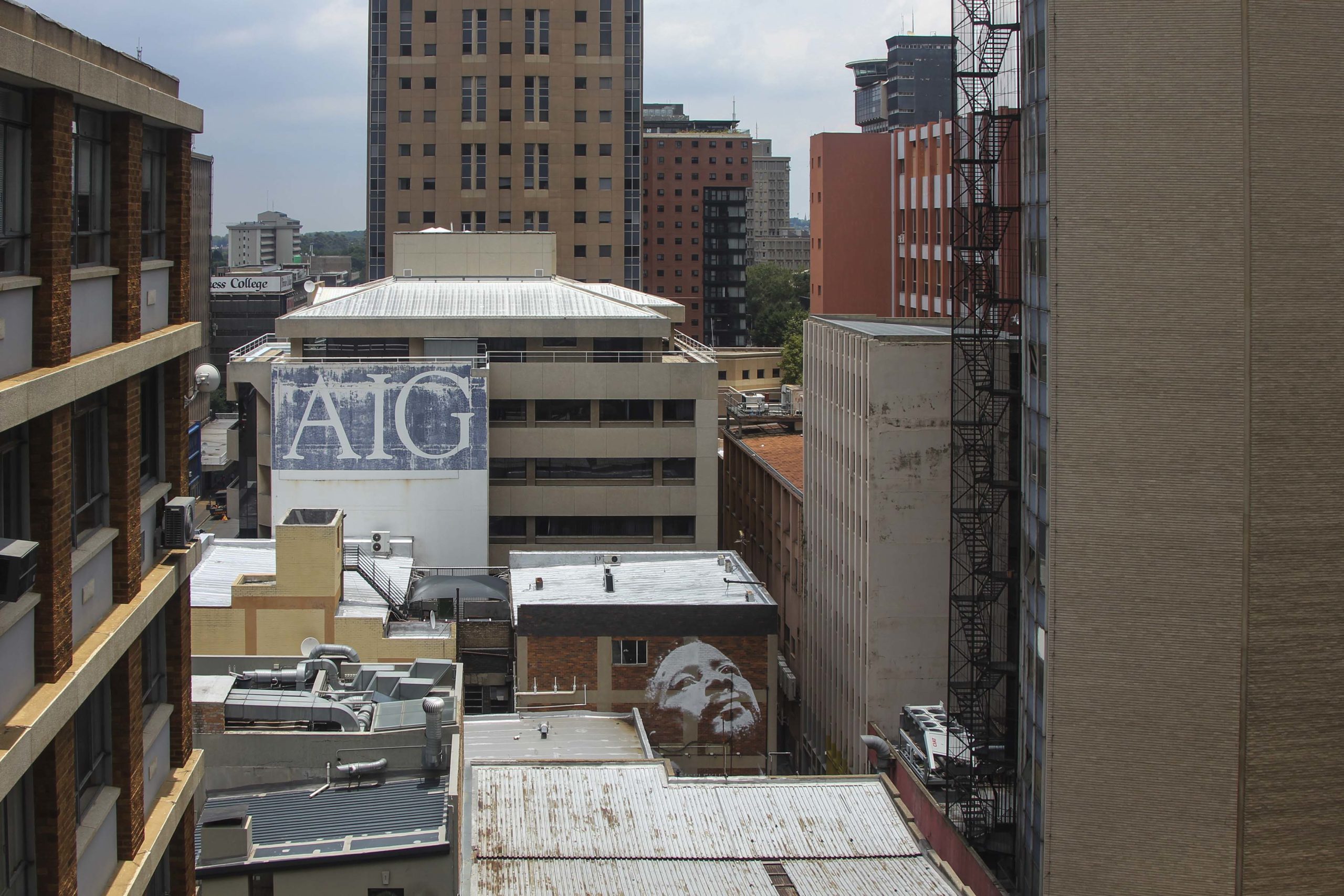
With folded hands that cover the coins in her lap, Phumzile Mlangeni, 51, sits outside CelltronicXpress, an electronics-cum-jewellery store in Jorissen Street, Braamfontein. On the pavement to her left is a large box of assorted fruit: bananas, peaches, nectarines and grapes. To her right is a box of multicoloured popcorn in small packets that she packaged the week before. She sells them for R3 each.
Mlangeni is one of the many street sellers in Gauteng who rely on the small income that such trading provides. The informal sector in South Africa accounts for 18.9% of total employment, providing jobs to about 2.7 million people.
Originally from Bergville, KwaZulu-Natal, Mlangeni has been selling here since 1999 to support herself and her family. But the money she makes is not enough to cover all her expenses these days.
The skin around her eyes scrunches up as she recounts her finances for a week. Business is bad, but it is better than staying at home. “I know here I can make that R50 and buy mealie meal for the grandchildren,” she explains.
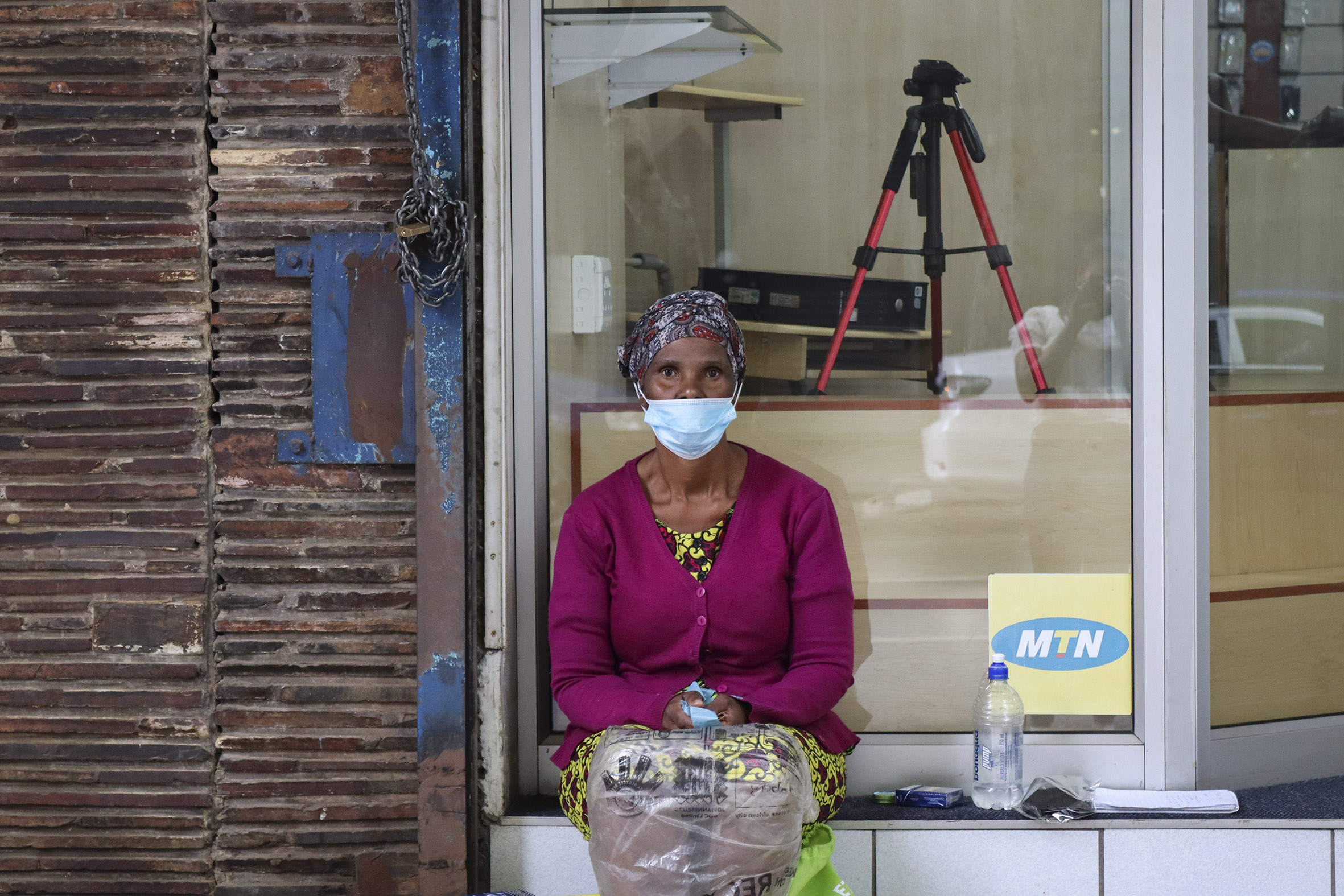
Metropolitan areas such as Braamfontein and nearby Auckland Park with their concentrated student communities and economies create foot traffic. But nearly two years of Covid-19 restrictions have drastically reduced it, and to make matters worse, Mlangeni could not trade at all from March 2020 for almost nine months.
Hard times also hit street vendor Julia Manare, 41, a mother of two, when universities switched to online learning in response to the lockdown. The majority of customers for businesses like hers, as well as for hair salons and restaurants, are the students who attend the universities of the Witwatersrand and Johannesburg, or the smaller specialised colleges in surrounding areas.
Suddenly no foot traffic passed by Manare’s stall outside Campus Square in Auckland Park. The money she makes selling sweets, cigarettes and fashionable hats is her only form of income. Losing it was devastating, she says.
Covid’s destructive effects
Oupa Matsitsi, 24, a well-known car guard in Braamfontein, tells of empty streets with not a single car in sight during the hard lockdown. Although people have been returning to work gradually and things have improved, he says, it won’t ever be the same. He still makes much less than before the lockdown.
Matsitsi used to take care of his friend with the money he earned. But during the lockdown in 2020 Siyabonga had to leave the shelter, where Matsitsi still spends his nights, because there was not enough money to pay for them both.
“I survived [with help from] the people living in the flats, people who would go buy things at Pick n Pay and [sometimes] give me money,” Matsitsi says.
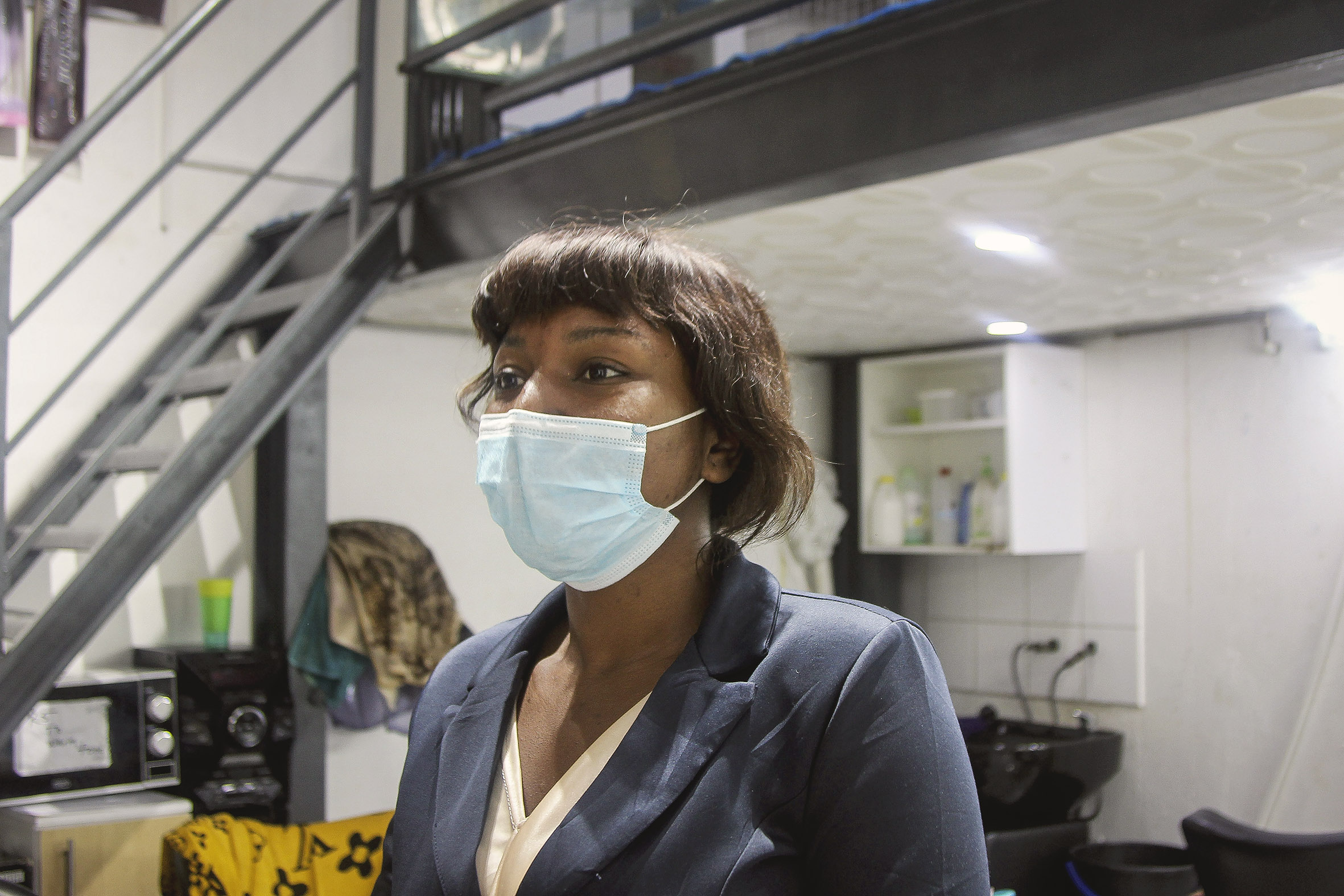
Similar to Matsitsi’s experience, hairdresser Yochebel Ngounou, 31, and nail technician Charlie Luzolo, 36, say their income has shrunk since Covid. Customers now want to negotiate the standard prices at their Braamfontein business, TBS Makeover and Beauty Salon where they rent a chair.
Normally they would charge R50 for a wash and dry, but now they get R35. The price of standard acrylic nails has dropped from R250 to R150. However, they add, earning less money is better than earning nothing.
Manara also says she does not make as much money as she used to – and her responsibilities keep piling up. She left Lesotho in hopes of better earning opportunities and sends most of what she makes to her children, who still live there. She often sits at her spot from 10am until after 6pm. “I come here to secure the spot and make sure no one takes it, otherwise there is no business here anymore,” she said.
Many stressors
Making ends meet is not the only stress street sellers in Braamfontein and Auckland Park endure. Owing to by-laws that prohibit casual trade in certain parts of Johannesburg, the South African Police Service and metro police often confiscate the stock of street vendors. Some of the traders say it is cheaper to buy new stock than to pay the almost R2 000 fine to have their confiscated items returned.
Traders like Mlangeni also get into trouble with the owners of the buildings outside which they trade. South Point Properties do not want her selling on the pavement, but the owners of CelltronicXpress don’t mind her being there.
The precarious nature of their trade means these vendors do not work from permanent stalls and pay storage fees for their stock and temporary structures. Mlangeni’s cost for this is R400 a month and Manare’s is R100 a month.
Then there are transport costs. On Monday and Wednesday mornings, Mlangeni makes a R17 taxi trip from her home in Orlando, Soweto, to the Johannesburg Fresh Produce Market in City Deep to buy her stock. The money she spends replenishing her stock fluctuates. Then she has to hire a van to transport her and her stock from the market to Braamfontein. This costs her R100 a trip. She has to save about R50 of her daily income to pay for transport.
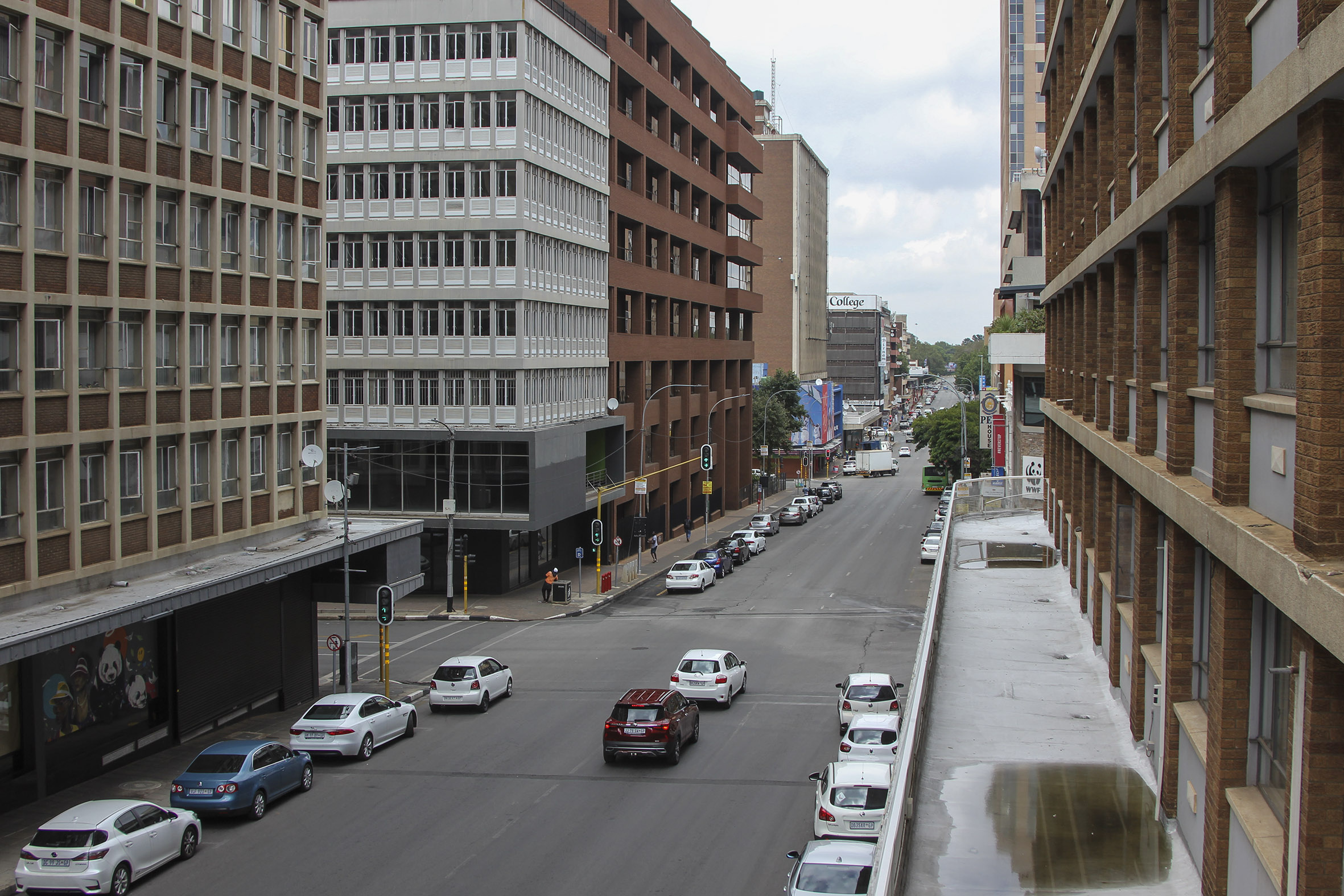
Mlangeni takes care of her three grandchildren, and her rent is R1 000. The stress in her eyes is evident as she explains the ins and outs of her finances and family responsibilities.
Thulani Dlamini, 47, another street seller outside Campus Square, looks after his family in Newcastle, KwaZulu-Natal. His voice breaks as he explains how they think he has a high-paying job because he works in Johannesburg, and how this could not be further from the truth.
In addition to his four children, Dlamini has had to take care of his brother’s three children since August 2021 after their father died. He receives the R350 social relief grant, which helps him with some of his monthly expenses. This month, he plans to send his child in grade 4 money for school shoes.
Joseph Ndlovu, 45, who trades on Solomon Street not far from the Braamfontein train station, did not apply for the social relief grant. “What do I do with R350? It won’t take me far,” he says. Ndlovu has been trading since 2004 and he had money saved for rainy days, which got him through the hard lockdown and the times when business was still really slow.
Universities will reopen for the 2022 academic year in March. Knowing that students will return to Braamfontein and Auckland Park provides at least some reason for optimism for these traders, who can only live in hope that their precarious lives and incomes will become more stable.
